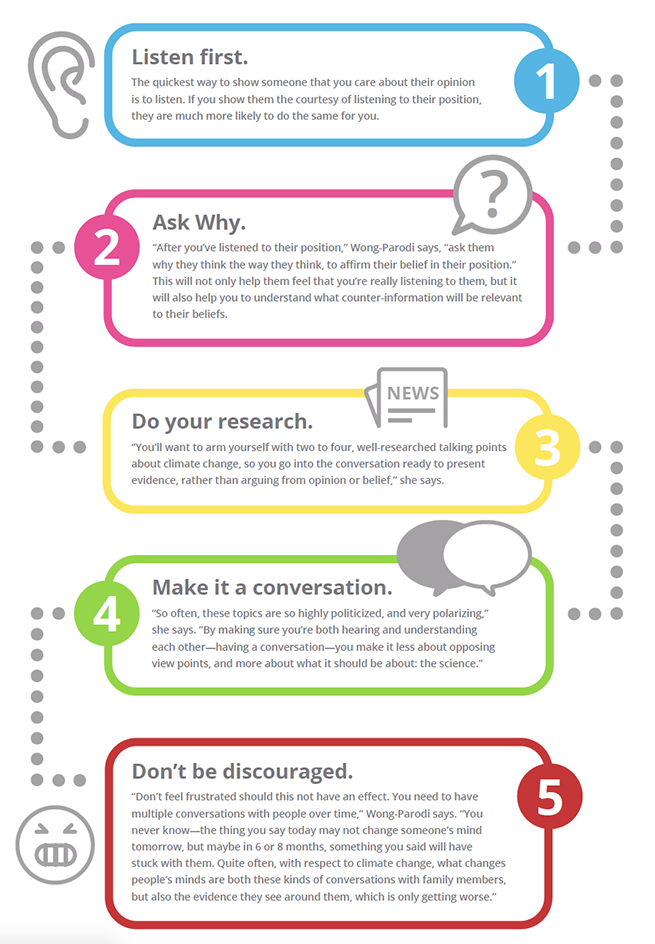EPP’s Wong-Parodi wants to help us talk about climate change
These days, having a conversation with someone whose opinions run counter to yours can seem terrifying. The fear of starting an argument is enough to keep people from interacting with anyone who might possibly disagree with them. But thanks to Engineering and Public Policy Assistant Research Professor Gabrielle Wong-Parodi, they may not have to be afraid—at least when it comes to expressing opinions about climate change.
Wong-Parodi studies evidence-based strategies for informed decision-making, and recently, she’s been focused on the problem of communicating climate science in ways that are both ethical and effective. According to her, you don’t have to be afraid to speak your mind, and these are her tips for how to do it well.

Wong-Parodi has suggestions for the scientific community as well. In her recent paper, “Informing public perceptions about climate change: a ‘mental models’ approach,” she outlines an effective and ethical approach to designing communications about climate research. Her mental models approach is based on first understanding what information people need to know, and only giving them info they can do something with. The approach is based on the Greek philosopher Grice’s four maxims of effective communication—the maxims of quality, quantity, relation, and manner—and one of her own development: proven effectiveness.
“When creating science communication, we need to test it to make sure that people can understand and use the information,” she says. “But if we’re really interested in educating people, we need to make sure they can do two additional things with the information—use it to make logical inferences, and to help inform their preferences in the future.”